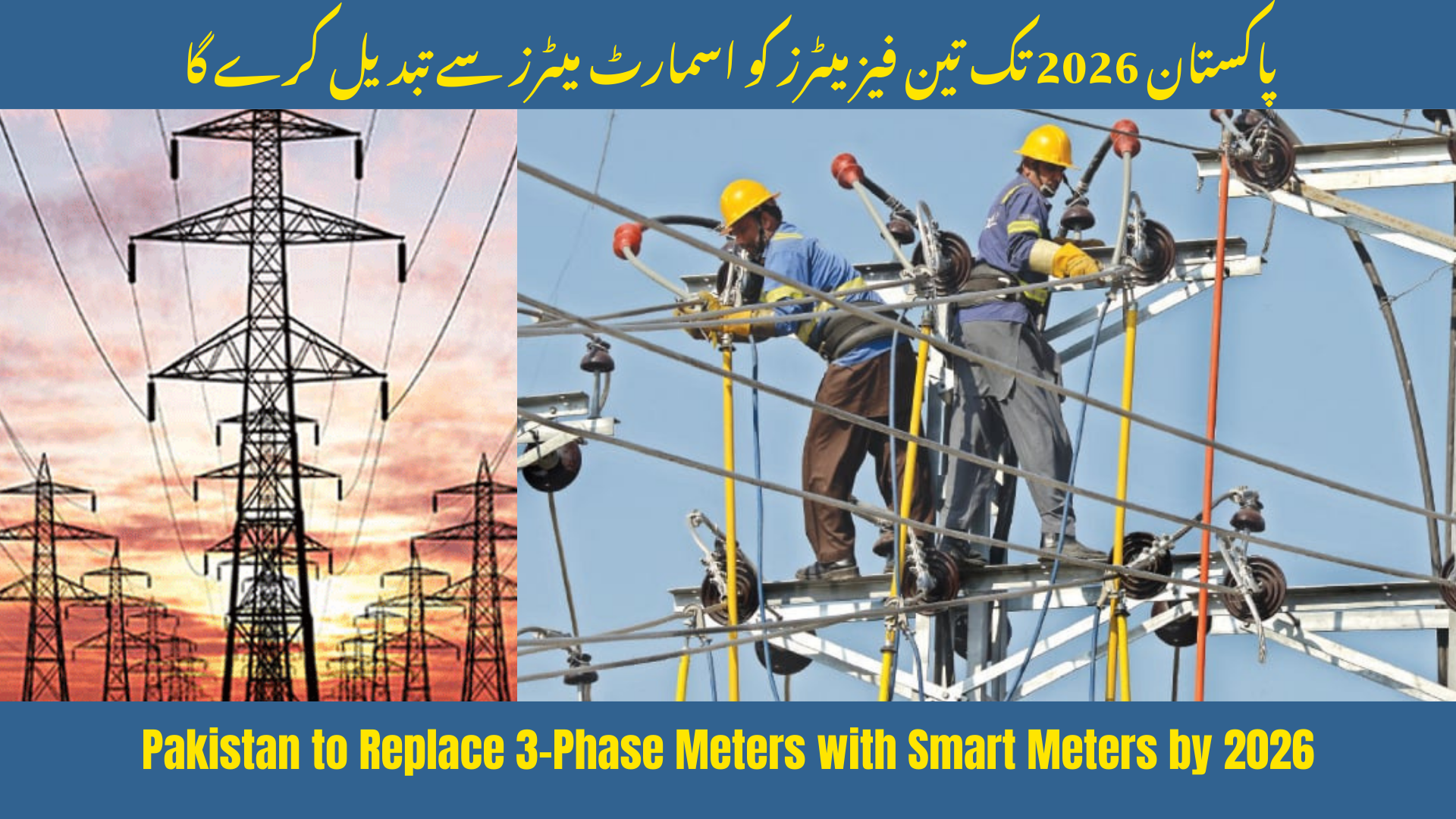In a historic move, the federal government of Pakistan has announced that all traditional 3-phase electricity meters will be replaced with AMI smart meters under the RDSS scheme. This nationwide project aims to modernize Pakistan’s energy system, reduce power theft, and improve billing accuracy. The Ministry of Power Division has set December 2026 as the final deadline for full implementation.
This decision comes after years of complaints about electricity theft, overbilling, and poor transparency in the power sector. By switching to smart meter installation, the government hopes to bring fairness and efficiency to both consumers and utility companies.
What Are AMI Smart Meters?
AMI (Advanced Metering Infrastructure) smart meters are digital devices that record electricity consumption in real time. Unlike old manual meters, these devices automatically send data to power distribution companies.
Key Features of Smart Meters:
- Real-time usage tracking
- Automatic data transfer to DISCOs (Distribution Companies)
- Detection of electricity theft or tampering
- Accurate billing without manual reading
- Consumer access through mobile apps and online portals
This means no more “guess billing” or disputes. Consumers will only pay for the electricity they actually use.
Phase One: 350,000 Smart Meters to Be Installed
The rollout begins with the installation of 350,000 smart meters in the LESCO (Lahore Electric Supply Company) region.
According to the Ministry’s Plan:
- LESCO will be the first company to start replacement.
- The process will follow a structured order.
- The initial cost will be borne by LESCO itself.
- Rollout will target high-loss areas first.
This plan is similar to PGVCL smart meter and PVVNL smart meter tender projects in India, where smart meters are being deployed under large-scale modernization programs.
Deadline: December 2026
The Ministry of Power Division has given all DISCOs a strict deadline of December 2026 to complete the replacement. This means the project must be fully operational within a little over a year.
Rollout Progress Strategy:
- Start with high-theft regions.
- Expand to urban residential zones.
- Cover commercial and industrial areas.
This phased strategy is designed to maximize benefits quickly while addressing key problem areas.
Why Replace Traditional Meters?
Replacing traditional meters with smart meters brings several benefits:
- Stops electricity theft: Tampering is nearly impossible.
- Ends overbilling: Accurate, real-time monitoring ensures fair billing.
- Improves transparency: Both government and consumers can track usage.
- Encourages efficiency: Consumers can manage their energy use better.
- Supports digital Pakistan vision: Modern energy infrastructure is key for growth.
Similar to Smart Meter News Maharashtra, this initiative will reshape how consumers and companies interact with electricity systems.
Financial Responsibility and Challenges
One major challenge is financial cost. Companies like LESCO must bear the billions of rupees required to install these meters.
Key Concerns:
- How will DISCOs fund the rollout?
- Will tariffs increase to recover costs?
- Are IT systems ready for large-scale automation?
Despite these questions, experts believe the long-term savings from reduced theft and improved billing will outweigh the costs.
What This Means for Consumers
For the everyday consumer, the smart meter installation comes with several advantages:
- No more inflated bills – only pay for what you use.
- Track your usage through apps and online portals.
- Quicker issue resolution as complaints can be verified digitally.
- Potential savings by monitoring and controlling electricity consumption.
This is expected to improve trust between consumers and power companies.
Implementation Challenges
While the plan looks good on paper, the government will face several hurdles:
- Rural areas may not have the infrastructure for digital meters.
- Consumer resistance due to lack of awareness about technology.
- Coordination issues between multiple DISCOs.
- Training requirements for technical staff.
To succeed, the government will need strong consumer awareness campaigns, just like smart meter news in Hindi has highlighted in India.
Regional & International Context
Countries like India are already making progress in smart meter rollouts through projects such as PGVCL Smart Meter rollout progress and PVVNL smart meter tender. Pakistan’s decision is aligned with regional modernization efforts and global energy efficiency trends.
Conclusion
The nationwide phase-out of traditional 3-phase electricity meters marks a turning point in Pakistan’s energy sector. By December 2026, millions of households and businesses will have smart meters, leading to more accurate billing, reduced theft, and improved transparency.
While the cost and implementation challenges are real, the benefits to both consumers and power companies are undeniable. If successfully executed, this project will help modernize Pakistan’s power infrastructure and move it toward a digital future.
FAQs
Q1: What is the deadline for smart meter installation in Pakistan?
The government has set December 2026 as the final deadline.
Q2: Which company will start smart meter installation first?
LESCO (Lahore Electric Supply Company) will begin the first phase with 350,000 meters.
Q3: How do smart meters help consumers?
They provide accurate bills, allow real-time usage tracking, and prevent overbilling.
Q4: Who will bear the cost of smart meter installation?
Initially, the cost will be borne by distribution companies like LESCO.
Q5: Can smart meters stop electricity theft?
Yes, smart meters detect tampering and unauthorized usage, making theft very difficult.













